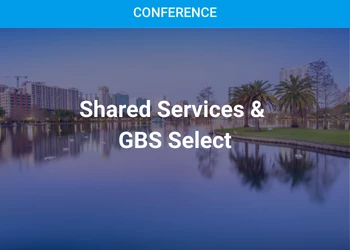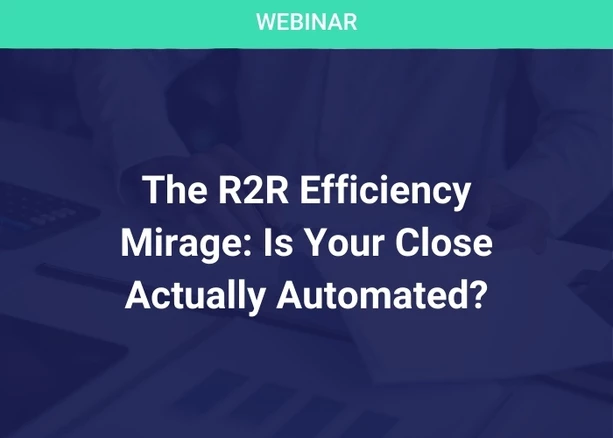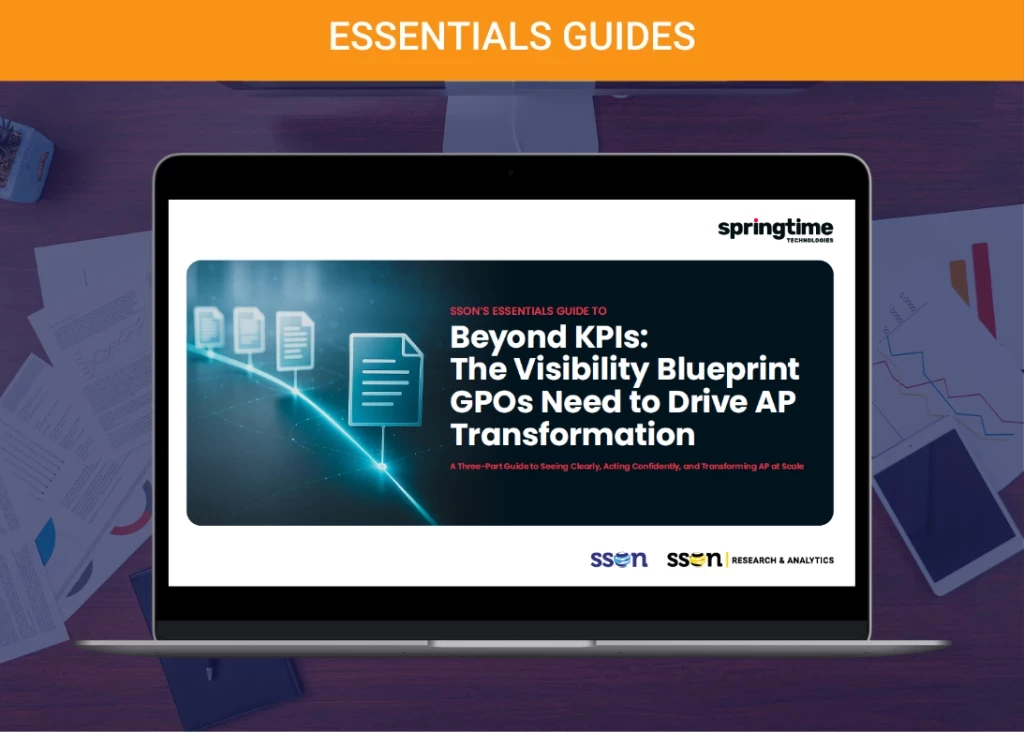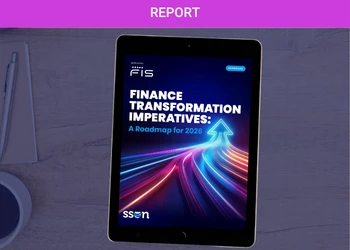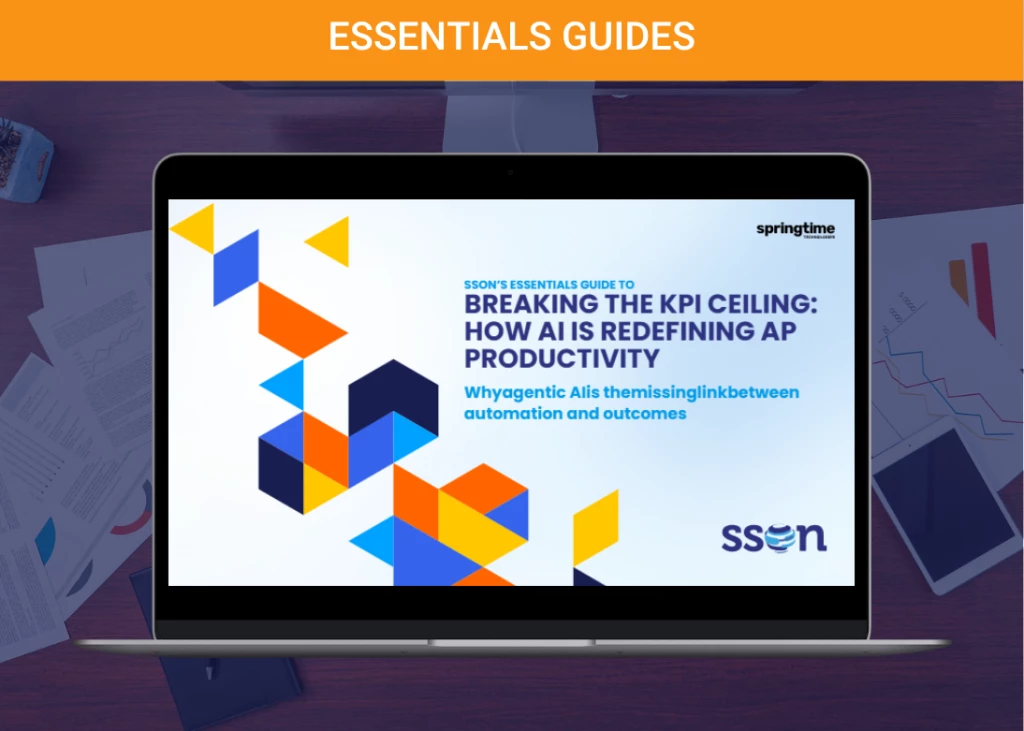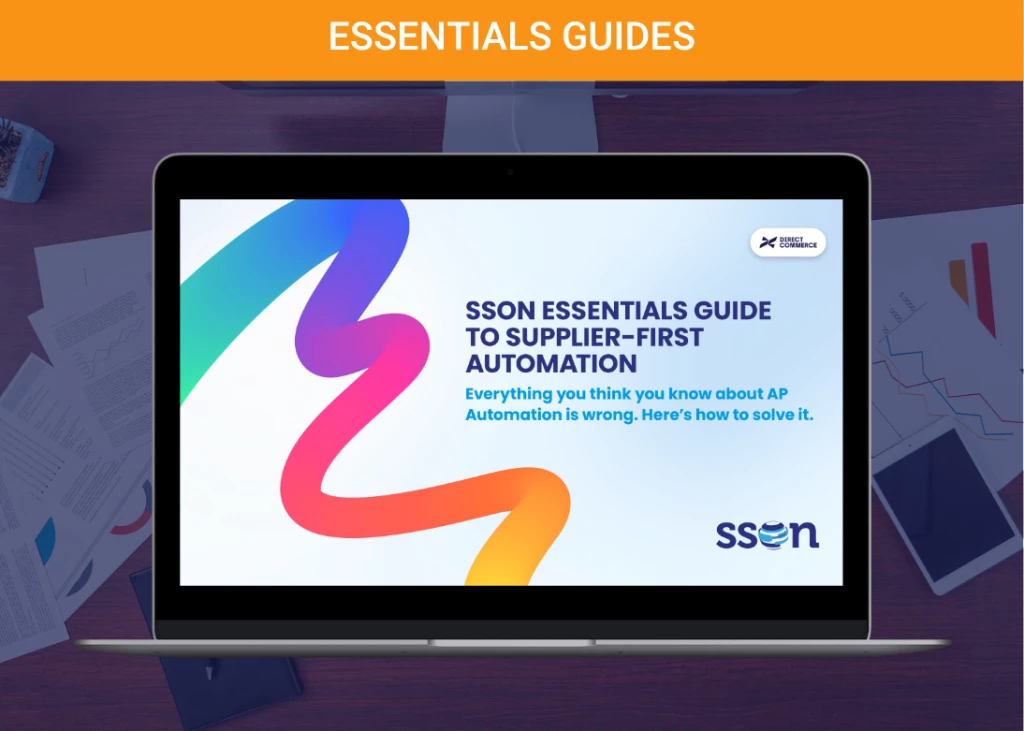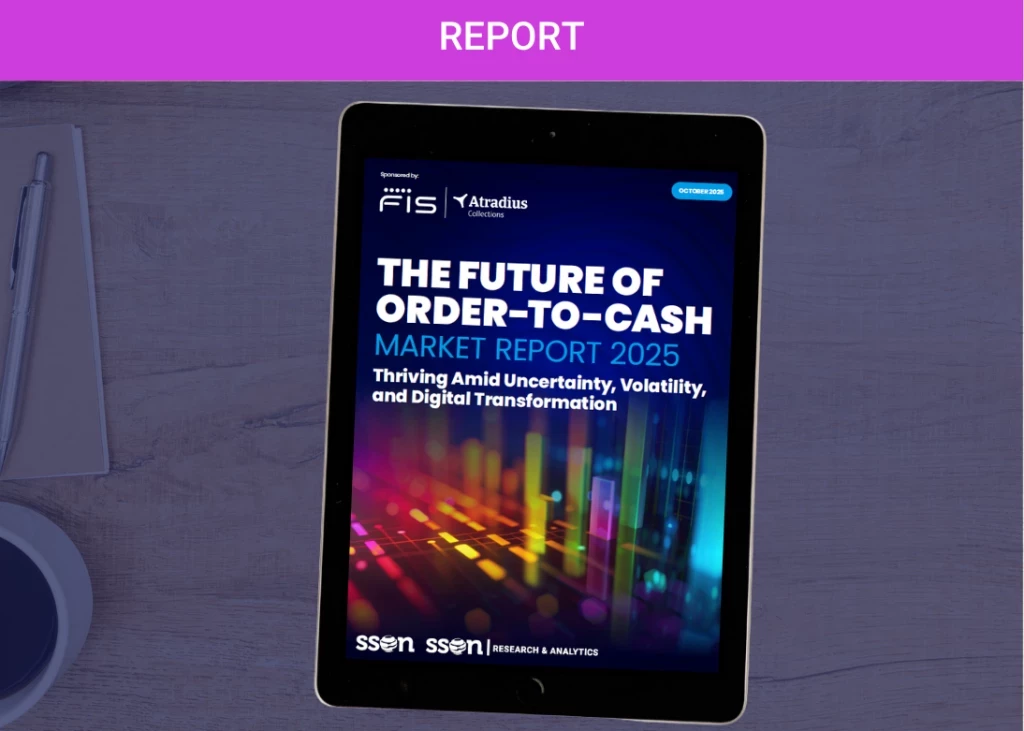SSON Podcast: Revlon's CFO Juan Figuereo
Add bookmarkRevlon's recent CFO, Juan Figuereo, says RPA is a significant opportunity

Recently retired EVP & CFO of Revlon Inc, Juan Figuereo joins us and notes that upon reflection the shared services industry is in a very good place. There are many options and with RPA there’s a new world of opportunity to improve efficiencies, reduce cost and improve capabilities. Juan shares that typically, the Fortune 500 tend to be more progressive, they’re more focused on cost efficiency and looking forward – so they’re ready for automation. In his opinion processes do not need to be optimized in order to automate. But that comes hand in hand with outsourcing those processes for automation.
Regarding his CFO role, it was aspects of the strategic agenda that kept him up at night. Back office only came into his mind if he was concerned with something…if something was going wrong.
"What a CFO does is fairly generic. The most important thing that you do as a CFO is together with the CEO decide where you’re going to allocate the firms resources. If you do a good job of that almost everything will flow more smoothly." Juan Figuereo
Listen below:
Or read the transcript:
Seth Adler: Welcome to SSON on B2B IQ, I'm your host Seth Adler. Download episodes on ssonetwork.com or through our app on iTunes, within the iTunes podcast app, in Google play or wherever you currently get your podcasts. WElcome, Juan Figuereo. So we're here in Miami, we're at SSON LATAM and I wonder what is your perception of where we are as a shared services industry. Where are we?
Juan Figuereo: I think the shared services industry is in a really good place because there are a lot more options now. And with robotics process automation, there is some new world of opportunity to improve efficiencies, reduce cost and improve capabilities. I think as an industry, you've probably never been better positioned than now.
Seth Adler: If the future is so bright, what is actually happening? And we'll use Revlon as an example, but only as an example. You have colleagues and you know what's happening at other organizations. Are organizations ready for what's happening right now? In other words, we've got RPA, which I call dumb automation. And we got AI which is intelligent automation, which feels like it's not quite here yet. But as far as the organizations mindsets, as far as the organizations structures, Fortune 500, are we where we need to be?
Juan Figuereo: I think if you look at the Fortune 500, the answer is unquestionably yes. Some more than others but typically the Fortune 500 tend to be a little bit more progressive, they're more focused on cost efficiency looking forward. So I would say that group is probably ready now.
Seth Adler: Okay. What about the fact that I have to have really good data and I have to have optimized processes before I even begin, right? Are most Fortune 500 companies in your mind there?
Juan Figuereo: I'm saying yes, although I would say you're saying you need to have optimized processes before you begin. I don't think so.
Seth Adler: Interesting.
Juan Figuereo: No, I think actually the size of the opportunity can be greater and more compelling if your processes are not optimized.
Seth Adler: Interesting.
Juan Figuereo: And some people think that you have to wait until you have the optimized processes but I ask why? If somebody can do that for you better, lower cost, why do you want to optimize? Just recognize that you're not and that's an opportunity.
Seth Adler: Can you give us an example that lines up that way perhaps?
Juan Figuereo: Yeah. Let's say looking at Revlon, where we've been looking recently at outsourcing some of the processes. So we looked at everything that was customer facing we said, "We want to wait, we want to optimize it." And then we saw some of the metrics with the outsourcers. And they were much better than we were, and frankly we're much better than we could hope to be in the near term.
Because your back office is never or rarely I should say a priority for allocating resources. So if you're going to allocate resources, be they technology, putting money into technology or people, to optimize your processes, chances are that there's going to be something else ahead of the queue for you.
Seth Adler: Right. Then of course, automation falls in line with most everything else, which is if we can outsource, if we can off-shore it, we should certainly do that.
Juan Figuereo: Yeah, because it'll pay for itself, the business case will be there. In most cases it will be compelling because back office, while important, is rarely a core competency for anybody.
Seth Adler: Mm-hmm. As far as your position at Revlon, you just left. What was it, you're the CFO and you get up every day and there are things that had kept you up the night before. What were those things?
Juan Figuereo: Rarely back office to be franc with you.
Seth Adler: Further to our point, right?
Juan Figuereo: Yes, so rarely back office. I knew coming in that the back offices were not efficient 'cause I had been CFO of three other public companies where we were more efficient than Revlon.
So I knew that was an opportunity but that's not what kept me awake at night or just thinking about top priority.
Seth Adler: Got it. And I guess without telling us any proprietary information, what types of things would keep you up at night as the CFO?
Juan Figuereo: So typically some of the big things that had to do with the strategic agenda. If you're working on an acquisition, as we were at the time. Or a business or the integration of that acquisition, those were the things that could make or break the future of the business, the business strategy. Those were the things you spend most of your time thinking about.
Back office you think about if you are concerned about something that may happen. The back office usually no one thinks about until something goes wrong.
Seth Adler: Sure. And for your example, if and when we need to discuss the back office in regards to the merger acquisition activity, certainly we're going to be focused on that at that point.
Okay, so Revlon you say, this is not your first rodeo as far as being a CFO. Where were you CFO just before Revlon?
Juan Figuereo: I was CFO for Nextel, the telecommunications company.
Seth Adler: Sure.
Juan Figuereo: Which actually listed on with the name NII Holdings, but that's the Nextel business outside of the U.S. And prior to that I was CFO of Newell Rubbermaid, based in Atlanta.
Seth Adler: Okay. So these are three different businesses with three different types of customers. I wonder what was the similarity beyond making sure that you were in business. What were the similarities in terms of running each of these businesses from the CFO desk?
Juan Figuereo: Although the industries are different, I think what a CFO does is fairly generic. First, the most important thing you do as a CFO is together with the CEO decide where you're going to allocate the firm's resources, both the money and the people resources. And if you do a good job of that, almost everything else will flow more smoothly.
In terms of back office, which it is our focus today, that tends to be fairly generic across industries. You've got the same 10 Qs, the same 10 Ks, how you close the books is very similar. Is more about the speed and the volume of transactions.
In a case like technology, Nextel, where you have millions of subscribers, customers tends to be a much higher volume of transactions than in consumer goods where basically you have retailers, large retailers as customers. Your customer universe tends to be smaller and therefore volume of transactions generally smaller.
Seth Adler: Mm-hmm. And that's where we get to the 30% or 40% of our businesses with this company even may be.
Juan Figuereo: Yeah, exactly.
Seth Adler: Which will remain nameless, I guess.
Juan Figuereo: Actually, which I worked for too in the past.
Seth Adler: Really, how so?
Juan Figuereo: At one point in my career I was actually head of M&A for Walmart.
Seth Adler: Okay.
Juan Figuereo: And I was there four years in Bentonville, Arkansas.
Seth Adler: So we have to now that you have let us know this information, we must discuss the Walmart and Google versus what was the other company's name? I can't remember ... Amazon, that's it.
So how do you see this divide as far as where we're going with e-commerce, shopping, retail in general?
Juan Figuereo: Where we're going in depth I think no one knows. But everybody thinks-
Seth Adler: Everybody's got an opinion though, right?
Juan Figuereo: Point of view, yes. And everybody seems to think that brick and mortar is going to go away. And I don't think so.
I think one thing I learned working in consumer goods is that the human behavior or your consumer behavior doesn't really change at its core. So technology can amplify some behaviors. Let's say for example before the internet, when you had a marketing campaign you were always looking for something where you could maximize word of mouth. Because people always believed their peer, their neighbor more than they believed any actor, any paid agent on TV.
With social media today is still the same behavior except that is amplified by your reach. But the behavior at its core is the same. So then that leaves me to retail, you still want to go some place where you can touch and feel the product. So I saw some research recently that we commissioned at Revlon. It basically said over 75% of millennials, 'cause we wanted to understand millennials and we thought they only want to shop online, over 75% of millennials want to shop more often in-store but they don't like the experience.
So that's the issue, is the industry needs to adapt. And I think that's something that Walmart and others are racing to do.
Seth Adler: Hence the retail apocalypse, which is upon us. But you say some decipher retail apocalypse meaning well, we're not going to have any stores anymore. And I can't help but notice that Amazon, their biggest acquisition is Whole Foods. We're not getting away from the fact that there's going to be a store component to that.
I was also walking on 34th Street in Manhattan and I noticed that Amazon Books. So it seems like they're going to in-store as opposed to ignoring it.
If they've got ease of shopping they're going to figure out this retail experience, which is different than pile it high and let it fly-
Juan Figuereo: Yes.
Seth Adler: ... which is a bad habit I think that we got into. Would you agree?
Juan Figuereo: Yeah, I would agree with that.
Seth Adler: If that's what they have, what can Walmart and Google do knowing that you understand the mentality, the mindset, the ethos at Walmart.
Juan Figuereo: I think Walmart and Google is a great match because you take Amazon and they're coming from the digital space into the brick and mortar.
And Walmart for a log time has been trying to figure out the digital space coming from brick and mortar. And the mindsets are very different. I think just like Amazon will have to learn and probably make a few mistakes as they learn about brick and mortar. Walmart being so large, it was kind of an impossible task for them to figure out. And they try and try and they fail.
So finally they changed the strategy with the acquisition of Jetcom, bringing people et cetera like that. And now the partnership with Google, they'll have somebody much bigger that comes from the digital space, arguably even more so than Amazon. It's kind of a more pure play. And so we'll see what that does for them but I think it's got great potential.
Seth Adler: Who would you rather be right now?
Juan Figuereo: I'd rather be me.
Seth Adler: Proving that he's a C-level executive that has had a microphone in his face before, he does not answer that question.
So all right. It's fascinating days and times. And it feels like everything is going to be different, But I'm hearing you say everything is going to be different but it really is still going to have the same backbone, which is the customer is going to do the same thing that the customer has always done.
Juan Figuereo: Yeah because the customer's the constant. At the end of the day, whether it's digital, whether it's brick and mortar, at the end of the day there has to be a transaction where somebody pays money for something, whether is a good or a service.
And how that happens, it will be in the way that best suits your needs as a consumer.
Seth Adler: So best suiting the needs of the consumer, getting back into your mind as a CFO of a Fortune 500 company. If I'm listening to you and I'm that executive or I'm an executive that cares what that executive thinks, what should I be doing with my organization, whether I be retail or not, as far as re-engineering my enterprise to be customer centric?
Juan Figuereo: That's the key. That's what you need to do.
Seth Adler: But how? In other words, what are the first kind of, what are a few tent pole concepts to keep in mind and to absolutely be doing?
Juan Figuereo: If you're going to be customer centric, first be very clear about who's your customer. Sometimes believe or not, people get confused about who their customer is. And I can give you some examples in the past.
But be very clear who is your customer, then spend all the resources necessary to understand that customer's needs today and how they're changing, how they're evolving so what their needs might be tomorrow.
If you do that, if you do it well, I think you will prosper.
Seth Adler: It's all about the resources-
Juan Figuereo: Yes.
Seth Adler: .. Says CFO Juan. Okay. Give us some of those examples of kind of maybe misperceiving a customer if you would, if you don't mind.
Juan Figuereo: For example when I was CFO at Newell Rubbermaid, recently renamed Newell brands. The CEO at the time had come from P&G, from Procter & Gamble. So he did have more of a let's put the consumer at the center than the previous administration.
So we started looking at some of the business units that had not been growing that fast. And so we had a business unit like Rubbermaid commercial products, for example. Like when you go through the airport, they make the tray where you put your stuff, that yellow triangle that you see, they make that. The push carts. So there's a lot of stuff that you don't normally pay attention to but are important and they make.
And so they always treated the buyer, the purchasing agent of the company let's say hotel chain, as the customer. Well, during research, we found out that they were actually, there was a buyer but there was a chooser.
Seth Adler: Aha.
Juan Figuereo: And they had different needs. And let's say, let me give you one example that where there's a very quick win on that basis.
They also made, the same group, drill bits. And they made the drill bits that you make for making round holes in a door or a wall, for example. And so the customer for them they always thought is the trades person, whose making the hole. And so for that person, they want certain characteristics in the product.
When they did the research they realized that actually they were a user and a chooser. The user was the one they thought that was a customer, the trades men. The chooser, the one who actually bought the large quantities was either a buyer or some other person whose main focus was productivity. Not necessarily ... Because they used to think is the speed of the cut that's important. So everybody designed and advertised that.
When they talked to this guys, they realized speed is important per how many holes you can make. And so they designed a circular bit, and circular saw that had slots on the side that allowed you to take the plug when you make the hole in the wall, really fast. Because they realized you make the whole and that speed is important for the trades men but then you spend almost three times as much time taking the plug out of the bit.
Seth Adler: Interesting.
Juan Figuereo: And nobody was complaining about that. But the guys who's a chooser, her wants that choice person to make x number of holes.
Seth Adler: Absolutely.
Juan Figuereo: And so with that saw, you largely increase 40-50% the number of holes that you could make. So now your guy is worth 50% more, he can make more holes.
So that took off and became the leading drill, circular bit in the industry.
Seth Adler: Because we realized it wasn't only the user, it was also the chooser who changed everything about the way that we spoke and thought about the product and there you go.
So there's your customer. Fine, now I understand who my customer is. How important is it though to understand what your value as an organization is? In other words, just going back to retail for a quick minute here. The folks that are succeeding are fast fashion. Your TTJ Maxxs and Ross stores are kind of both ends of the spectrum. But it is the shopping experience. So you have to come in for a TJ Maxx and you have to come in for fast fashion.
How do you define who you are? If you talk about Revlon, if you talk about Newell Rubbermaid, even Walmart or Nextel, these are conversations that really need to happen now. Yes?
Juan Figuereo: Yeah. Absolutely, so who you are is key, is important. I agree with that, you need to understand that who you are and how your customer views you so you can deliver against the expectation.
You mentioned like the TJ Maxx, fast fashion, they are very different and they're different customers and different occasions, shopping occasions I will shop one versus the other.
Seth Adler: Certainly.
Juan Figuereo: So understanding who you are will deliver against that. If you're a TJ Maxx, there's that treasure hunt. People are going there and they want to find something that's surprises them. They want great value, et cetera.
But they don't go there for the assortment. Fast fashion they go there if you are into fashion, you want something whatever's trending, kind of the last of the moment, you're willing to pay more. So they're different customers, different occasions and you need to understand them well and what they see you as delivering to them.
Seth Adler: Understanding that whole thing, right? Now that you can take a step back from having to worry about brand X. What is missing do you think, just generally as far as consumer offerings? You've been in big box, you've been in specialty, you've been in everything in between. Where is the consumer still looking for something? You mentioned research that you did for Revlon where there is no answer.
Juan Figuereo: Yeah, I think what is going on is that the consumer is changing habits. The core habits are the same but there's technology now that's enabling some of those habits. And that hasn't settled down yet. And where it's going to settle no one knows.
Let's take apparel for example, because you alluded to apparel for a second.
Seth Adler: Sure.
Juan Figuereo: What is missing in apparel right now is if I go into a brick and mortar store I can try a shirt. I can see what it looks like on me and make my decision there. If I go online there are some attempts to show me what that looks like, but they're not convincing enough yet.
Will it get there? I am sure. Who's gonna be there first and how? We don't know. But somebody will. And so when they-
Seth Adler: They've been trying it since the late '90s and I'm sure they're gonna get there eventually.
Juan Figuereo: Yeah, exactly.
But it will. And so when they do to the extent that it enables the core consumer have it, that will work. And that will cause the consumer to support that, to change that. So that's still in flux. That's gonna play out over years.
And I don't think there's anybody who has the research or the ability to say exactly how and when.
Seth Adler: So what should I be doing right now if I've got a VP in my title of any kind. What should I be thinking, what should I be doing? At any company. What are your thoughts? What should I be reading? What should I be doing? What should I be mentioning? What should I be suggesting to CFO or the rest of the C-level folks?
Juan Figuereo: That reminds me one day I saw an interview of Jack Welsh was speaking to a Harvard graduating class. And so one of them asked him, "You're a CEO ... " He was the CEO of GE at the time. "You're CEO of a big company, it's important. How do manage between the long and the short-term?" Which is kind of what you're ... In a way what you're asking.
And he said, I guess nobody expected this, he said, "Look I can tell you as a CEO that there is no long-term." He said, "A managers job is to deliver short-term results. And long-term is making sure you are here tomorrow to deliver short-term results."
And I love that because that is a mindset that says, what should I be doing? You need to do what you need to do to deliver results today.
Seth Adler: That's it.
Juan Figuereo: But if you're not looking forward to what you need to do to deliver tomorrow, the next quarter, the next year. You're going to be outdated. You're gonna be out. So you need to do both things. You need to figure out what do I need to do and to deliver today? And what do I need to do to prepare for tomorrow while delivering today?
The issue that we have today, is that tomorrow used to be easier-
Seth Adler: To gauge.
Juan Figuereo: Yes, in the past.
Seth Adler: Right.
Juan Figuereo: Now-
Seth Adler: Who knows?
Juan Figuereo: ... It's very difficult.
Seth Adler: So have the three to five year plan and then set your goals accordingly. But definitely make sure that you're delivering on tomorrow, today.
Juan Figuereo: Yeah, and have that pulse, that thumb on the pulse of the customer because it is changing and it's going to change in whatever you thought was going to happen next and two or three years out is going to be different.
Seth Adler: Do I need a three to five year plan anymore? I'm not even kidding when I ask you that based on what you're saying.
Juan Figuereo: Actually I do think it is a good idea. I mean somebody said a plan is a basis for change. To have something you can change from. But as a CFO for example, I need to have a plan for me try and figure out how much resource I'm gonna need in the future? How to fund the growth and there's gonna be adjustments. They are usually not orders of magnitude in terms of changes. It's more like fine tuning because the world doesn't change over night.
It looks like it when you look at it in hindsight, but the changes are usually gradual.
Seth Adler: Let me ask you this. It's almost the same question in a different way. Let's say 20 years ago, what was the time that you were kind of managing towards ... Meaning you know I managing three years out right now and 20 years ago it was always three years out, three years out, three years out. Where as, first quarter 2017 it was 18 months out. Am I asking that clearly enough?
Juan Figuereo: No I'm not sure what you're trying to get at.
Seth Adler: If we're saying that the future is more hazy now. I wonder how that changes the way you manage your internal timelines? You say the plan is the basis for change essentially. And you have to have a three to five year plan. But you're really ... Make sure you delivering on tomorrow. How much has that changed in the past 20 years for the way that you manage the business? When you go into a board meeting, here's our 20 year plan versus here's our six month plan.
Juan Figuereo: Yeah. First anybody who goes in with a 10, five year plan. I think they are being ridiculously stupid.
Seth Adler: Fair enough.
Juan Figuereo: Nobody can see that far.
Seth Adler: Okay.
Juan Figuereo: But I think that what has changed if we go in with your three, even five year plan, I think more realistically should be about three, is you're going to execute the one year and you're going to be looking at what changed or what is changing so I can change and adapt my second and third year.
Seth Adler: Here's the three year plan. We're executing on the first year, and I guarantee you're going to change it in 12 months.
Juan Figuereo: Exactly, yeah. That's life today.
Seth Adler: All right. I've got three final questions for you. I tell you what they are and then I'll ask you them in order.
Juan Figuereo: Okay.
Seth Adler: What has most surprised you with work along the way? And we really didn't get into the early days of you actually having to do work as opposed to being just one of these lucky CEOs, lucky C-level executives. And of course, I'm joking.
What has most surprised you in life? And then on the soundtrack of your life, one track, one song that's got to be on there.
But first things first. Along the way, what most surprised you at work?
Juan Figuereo: What has most surprised me at work. I have had a great career with different companies. I have lived overseas in a lot of places, so I have moved, my wife and I were counting, 14 times.
Seth Adler: Oh boy.
Juan Figuereo: We lived in London, we lived in Barcelona, a lot of places. And so what surprised me most at work is how similar people are regardless of race, country, ethnicity, religion, et cetera.
Very, very similar habits, people doesn't matter where you ar, are kind of the same concerns, same issues, same focus. It might be different how they experience those depending on the country and where you are.
But generally, at the end of the day, I thought I found that we are really very similar. So that was a surprise.
Seth Adler: I feel like we should let people know this. Because I think that in this general zeitgeist right now, folks focus on the fact that everybody's different.
Juan Figuereo: And we are most similar than we are different.
Seth Adler: I think we got to let people know.
What's most surprise you in life? That's a big one for work, but what most surprise you in life?
Juan Figuereo: I think the biggest surprise for me in life is how much your mindset, your attitude will impact and influence everything around you. And some things even in ways that are even hard to explain how and why.
Seth Adler: Okay. Understanding the words that you just spoke I'm going to ask you to try to explain how and why you mean what you mean. Can you give us one level deeper?
Juan Figuereo: Yes. What I mean is if you ... What I learned over the years is that if you want something bad enough and you kind of think about it, you visualize it, you imagine it, it will happen.
Most of the time we're just will happen for you and most of the times, actually in my case. I couldn't tell how or when but it's like things begin to align in your favor or in the favor of that idea, if you're very clear and persistent.
Seth Adler: I see what you're saying there and I don't disagree. I just wonder if you would add maybe make sure to pay attention to certain indicators, to help you along that path as opposed to kind of fighting against them.
So I've got a phrase that I use, which I don't know if it's true anymore. And I wonder what your thoughts are. Sometimes to continue on the path of least resistance you have to run through a wall. Right?
Juan Figuereo: Yeah.
Seth Adler: So I don't know if that's true though, is it true that you have to run through the wall or do you just maybe make your way around it?
Juan Figuereo: I think it's more about is painful to run through walls. I think you have to make your way around it. And once that has worked well for me, what I was saying is, I'm going to write down my goals and one technique I learned way back one training I had, was write a letter to myself about what I want to find myself from five years. What are my goals, personal, work, et cetera?
I put it in my briefcase and from time to time I look at it. But that is there ... What I have found that the big things in that letter always happened but some of the hows I thought I would do will be completely different.
Seth Adler: Got it.
Juan Figuereo: So instead of the running through those walls, I'll go through different routes. But almost always get there.
Seth Adler: Take the maze and find the pot of gold, so to speak.
That brings us to our final question, which is Juan Figuereo, on the soundtrack of your life, one track, one song that's got to be on there.
Juan Figuereo: One track, one song. I don't know, which song says thank you but it's got to be ... This is really to thank all of the people that I have had experiences with, that helped me either through positive example, by emulating what they did, learning from them. Or negative, in some cases looking at people and making sure I don't want to do that or I don't want to be like that.
But generally just really thanking all of the people that I stand behind today, and I have learned from in my career.
Seth Adler: I think that there's a Led Zeppelin song called Thank You. So maybe we'll just go with that.
Juan Figuereo: I need to look it up, yeah.
Seth Adler: Juan Figuereo, thank you so much.
Juan Figuereo: Thank you.
Seth Adler: I appreciate it.
Juan Figuereo: Pleasure.
Seth Adler: And there you have, Juan Figuereo, what a CFO does is fairly generic. The most important thing that you do as a CFO is together with the CEO decide where you’re going to allocate the firm's resources. If you do a good job of that, almost everything else will flow more smoothly.
Very much appreciate Juan's time, very much appreciate your time. Stay tuned.





